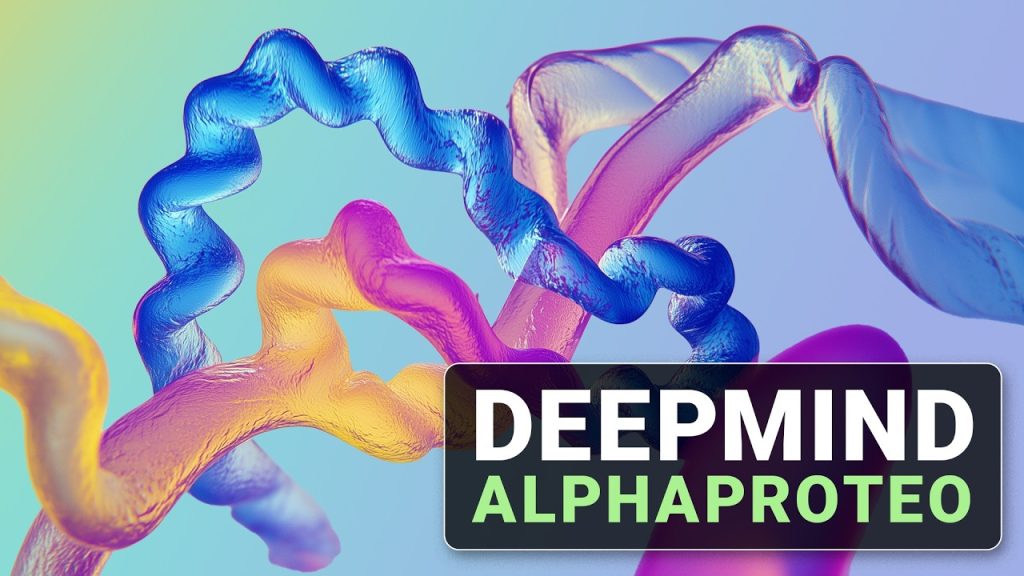AI Design Breakthroughs in Protein Binding with AlphaProteo

An exciting new paper from Google DeepMind suggests a significant breakthrough in medical research. This paper is aligned with the AlphaFold family, which revolutionized protein folding predictions.
The latest innovation, AlphaProteo, promises to enhance drug development, cell imaging, and crop resilience. The implications for healthcare and agriculture could be monumental if its capabilities hold true.
Understanding Protein Folding
Proteins are strings of amino acids, which are the building blocks of life. They have complex 3D structures that are challenging to predict. The AlphaFold AI made remarkable strides in solving this problem, making protein folding a nearly solved issue.
However, protein folding is just part of the picture. There was still a missing element in understanding the full potential of proteins and their applications in various fields.
Introduction to AlphaProteo
AlphaProteo goes beyond AlphaFold by not just predicting protein structures but also designing them. This advancement allows the AI to create protein binders that can recognize and attach to specific proteins.
This capability has far-reaching implications, including potential breakthroughs in drug development, enhanced cell imaging technologies, and the creation of more resilient crops. The possible applications are vast and varied.
Why AlphaProteo Matters
Traditional techniques for designing protein binders are incredibly time-consuming and labor-intensive. They require extensive lab work and numerous tests to ensure the binder effectively attaches to the protein.
In contrast, AlphaProteo can instantly design protein binders with just the input of a target molecule and a preferred binding location. This efficiency could revolutionize how we approach biomedical and agricultural challenges.
Evaluating AlphaProteo’s Performance
The newly designed protein binders from AlphaProteo are three to three hundred times more effective than previous methods. This improvement is groundbreaking.
Additionally, AlphaProteo performs well even in cases where traditional techniques fail, particularly with proteins linked to severe diseases. This makes the AI’s potential impact even more significant.
The affinity scores for AlphaProteo’s designs are also impressive. Lower affinity scores indicate tighter binding to the target protein, and AlphaProteo excels in this area compared to older methods.
Practical Applications and Verification
Many medical AI papers show promise in theory but fall short in practical applications. However, AlphaProteo’s designs have been tested in a lab, with a success rate ranging from 9% to 88%, which is remarkable.
These verified results bring us closer to using AI biology models to treat diseases that were previously untreatable with our existing knowledge. The practical success of AlphaProteo adds to its credibility.
Impact on Future Research
AI research has accelerated breakthroughs in biology, making significant advancements possible in mere months rather than years or decades. AlphaProteo is part of this rapid evolution.
Moreover, the research paper detailing AlphaProteo’s methodology is freely available, making this a valuable resource for scientists and researchers worldwide. This openness fosters further innovation and discoveries.
A Gift to Humanity
Google DeepMind has shared the research paper for public access, making this incredible advancement available to all. This approach underscores the importance of collaboration and knowledge sharing in scientific progress.
AlphaProteo represents a monumental step forward in AI’s role in medicine and agriculture. Its ability to design effective protein binders quickly and accurately holds promise for numerous applications.
With verified lab success and freely available research, AlphaProteo could pave the way for future innovations and breakthroughs. The possibilities are indeed exciting and transformative.
Source: Youtube





